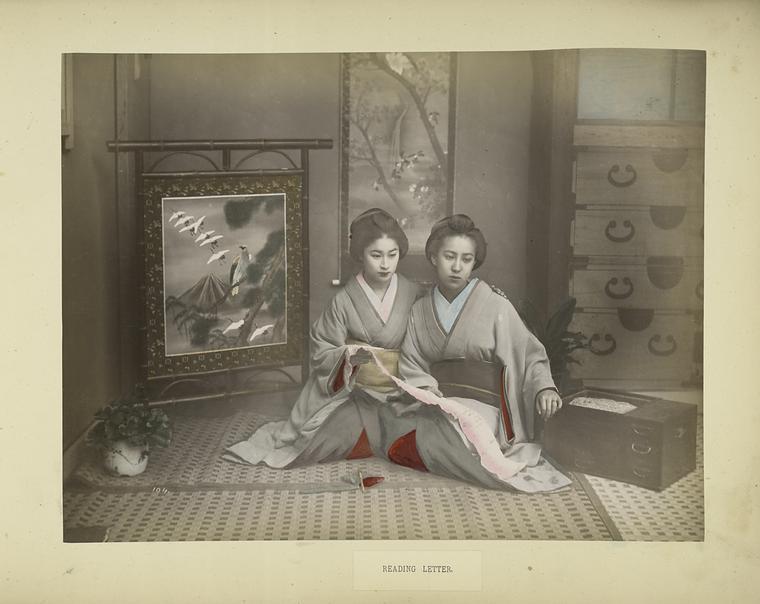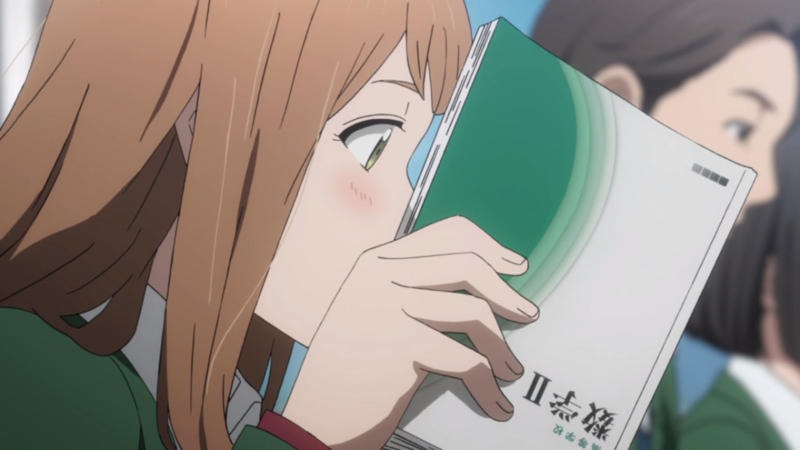
Book reading is on the decline, at least in the US. According to Gallup (Jones, 2022), Americans read 3 fewer books in a year. The total percent of people who don’t read books held steady at 17%, but everyone is reading less, with the highest averaging around 10 books a year. The survey includes partial-reading books.
Pew Research (Gelles-Watnick, 2021) states around a quarter of Americans haven’t read a single book in a year. People with a high school education are less likely to read books than those with higher education: 39% vs 11%.
It doesn’t help celebrities like Kanye West speak against reading books along with the rise of passive Internet video watching (Williams, 2023). With the rise of template-following bestsellers and controversies surrounding books, such as book bannings and even book burnings, books are under threat. There’s also a powerful anti-intellectualism aspect to American culture which contributes to the decline in reading and in the quality of books.
So my goal for this article is to convince you to read books if you don’t and to convince you to read more if you do. People sometimes ask me how many books I read in a year; I read about 1 book each week, depending on what I’m reading. I’m bogged down in a 1,000 page historical analysis of the Apostle James as I write this article. I don’t write this to brag. Rather, I’m telling you I’m biased. I believe everyone needs to unplug from the Internet and television and read everyday for at least an hour.
Why and How Should You Read?

The whys and hows of reading link together. The boilerplate response: you read to expand your mind! As if expansion happens naturally. Quite the contrary, reading in an information silo only reinforces your mindset. I see this at work among my library’s patrons. They only read books they already agree with or view as nonthreatening; this is why template-following books like what James Patterson produces sell so well. They are the same, but slightly different (very, very slightly from what I’ve read of them). How you read, therefore, links with your why. If you want to reinforce siloed thinking, you don’t have to think much about the how. But if you want to “expand your mind” as the cliche goes, you have to read strategically with your why in mind.
Despite the enormous quantity of books, how few people read! And if one reads profitably, one would realize how much stupid stuff the vulgar herd is content to swallow every day.– Voltaire Books aren’t free of the “stupid stuff” Voltaire discusses. But even the shallowest book contains more depth than video or articles like this one. A good reader doesn’t limit herself to only books she already agrees with. She reads the “stupid stuff” with the idea that the conclusions she holds could be wrong. This isn’t easy, however. The point is to read views you find offensive with intellectual honesty, truly looking at why you find the ideas offensive while also looking for the reason why otherwise rational people hold them. That’s the key: most people think as they do because it is rational to them. –Voltaire
Learning is to a man as the leaves and branches are to a tree, and it can be said that he should simply not be without it. Learning is not only reading books, however, but it is rather something that we study to integrate with our own way of life. –Takeda Shingen
Reading books with sympathy (I’m using the word in the old way; that is, with a an open mind and the benefit of doubt) helps you learn how you learn. Everyone has blocks on their learning: something that acts as a wall. You don’t have to agree with a book’s views to learn about your internal blocks. This mindfulness can then be integrated into your way of life. Of course, books also provide ideas you can integrate too, like Shingen’s quote! Merely reading books, however, isn’t helpful if you don’t apply the ideas. Integrating what you learn takes time, and a journal or taking notes can help you digest a book.
“If you haven’t read hundreds of books, you are functionally illiterate, and you will be incompetent, because your personal experiences alone aren’t broad enough to sustain you.” ― James Mattis
Personal experiences are limited by definition. The mind likes to lead itself astray through its biases and desire to be right. By reading broadly across viewpoints, you can absorb the perspectives of people you may never, and cannot, meet. The minds of others can shine light upon your own. I agree with General Mattis with the numbers. You have to read hundreds of differing viewpoints and ideas across time and culture to be literate. As Yamaga Soko put it:
How could we who are alive in the present day know about events hundreds of years ago, or consider the ways of remote foreign lands, if not for books? Therefore broad study of literature should be used to empower the intelligence.
How do you know you are literate? When you don’t believe you are literate. As your mind opens, you see just how much you don’t know and how much you do not understand. This becomes particularly true of views you find foolish or damaging. You see how you just cannot understand the minds that hold such views, which ought to drive you to read more so you can understand.
When people are ignorant of past and present and do not comprehend changes, they are narrow-minded, their disposition is prone to prejudice, and their intellect is one-sided. That is because of taking education to mean learning the writings of ancient people. But if you study yet only work on yourself superficially, literary ability may become harmful because of this ignorance of how to use it. –Yamaga Soko
If you read for the wrong why and with the wrong how, you can fool yourself into thinking you are literate. Intellectual arrogance and other misuses of knowledge shows your lack of literacy. In other words, the correct whys of reading books involves seeking awareness of your learning habits, revealing your biases, challenging those biases with the perspective of others, and learning how much you don’t know. In short, you read to grow. The hows of reading involve reading broadly to exposure yourself to a variety of cultures, ideas, histories, especially those you find offensive or disagree with. Reading with sympathy and with the knowledge the author is a rational actor is critical.

But you also need to read deeply. If you only read broadly, you can delude yourself into thinking you understand when you do not. However, if you read deep into a certain topic, you will see you don’t understand. I’ve lost track of all the books and research articles I’ve read about Japan, for example. I wouldn’t be surprised if, especially if I include research articles, the number approaches 1,000. But I know nothing about Japan–not really. This is also the case with my studies of the Roman Empire/Early Christianity, which I have studied for far longer than Japan. I’ve read about Rome since I was in middle school. I know nothing against the vast body of information. Reading leads to endless discovery, but it is also uncomfortable: you have to forever face your lack of knowledge and the uncertainty of the knowledge you do have. A good reader must be open to being wrong.
The why and how of reading can’t be separated. Reading well makes you humble and builds your character. Reading poorly can make you arrogant and harden your cognitive biases.
Men of average abilities may become top quality by education, and even the inferior and ignorant may become average in ability to education and training. Much of the difference in people’s quality comes from learning. –Tsugaru Kodo-shi
References
Gelles-Watnick, Risa, Perrin, Andrew (2021) Who doesn’t read books in America? Pew Research Center. https://www.pewresearch.org/fact-tank/2021/09/21/who-doesnt-read-books-in-america/
Jones, Jeffrey (2022) Americans reading fewer books than in the past. Gallup. https://news.gallup.com/poll/388541/americans-reading-fewer-books-past.aspx
Williams, Thomas Chatterton (2023) The people who don’t read books. The Atlantic. https://www.theatlantic.com/ideas/archive/2023/01/kanye-west-sam-bankman-fried-books-reading/672823/




As a kid, I disliked reading. However, as I have grown older, I find that I appreciate it a lot more.
I find that people just need to start reading things that they like. After they develop the reading habit, then they can start expanding into things that they might not naturally gravitate towards.
Reading what you like is the key. It’s critical for public libraries to offer every genre. Unfortunately, public libraries often focus on bestsellers, which aren’t for everyone.
I would like to add that it’s okay that you can’t read everything possible. Plus, it’s okay to put down a bad book after you’ve given it a decent enough chance.
I honestly read for fun (even though I do try to learn a few things when I can). I sometimes think that we’re taught that reading isn’t fun due to all the schools requiring it, which just discourages a lot of Americans to not read as they become adults.
I used to be one who would finish a book regardless of how much I disliked it. Life’s too short and there are too many books to read for that!
You’re right about how schools don’t make reading fun. I enjoy it, and read broadly. Some people need a reason to read, however, before the fun part becomes a focus. Why should you read books? Because reading is fun! Sadly, people need convincing of that.
I want to add here that simply understanding something new can be fun. And reading is, if nothing else, access to information as well as to others’ thoughts.
Two goats are eating a roll of film. One says to the other, “The book was better.”
Of course, it’s a joke understood only by readers who’ve experienced how the free pace of text allows for depth and detail. But that assumes one reads.
Having fallen into the adjunct supervision of several prospective teachers, I’m surprised at the general inability to read displayed by a large proportion of their students. As an acquired skill, like playing an instrument, it’s a disconcerting thought that we may be entering an era where written communication becomes the domain of a rarefied class.
The US education system makes reading such a chore that it’s a surprise anyone still enjoys reading after enduring it.
Any suggestions?
1. Do away with Accelerated Reader and similar programs, or, at least, open the program up so kids aren’t locked into certain reading levels and point goals. Instead, measure time spent reading. AR rewards fast readers and students who are good at taking tests. The program hurts slow readers and anxious test takers. Neither of which have anything to do with reading.
2. Schedule class time for reading.
3. Cool teachers need to share their passion for books (and have that passion).
4. Spend less time “reading and regurgitating” information for tests. Instead, encourage free and experimental thinking and teach skills on how to make information found in books relevant in students’ lives right now. Questions like “What would you do in the situation we just read about? Why would you do that? Why wouldn’t you do x? What do you think would happen if you did/didn’t do X in the situation in the book?” go a long way toward teaching application.
Thank you. I’m supervising three teachers, one upper primary and one elementary. The other is a mathematics, single subject. Not many are left willing to go into the profession anymore.
“A.R.” is used by the upper elementary, but the kids aren’t locked into anything other than some minimum number of points each quarter. Apparently, the reading leveling tests (“STAR” I believe) provides an acceptable alternative to something hideous that the school district requires for bi-weekly monitoring.
Both of the elementary teachers use literature (not textbooks) for their “instructional-level” reading (per their Lead Teachers’ approaches), with a great deal of hands-on due to the number of English-language learners. The primary class just went through, “The Big Orange Splot”. In the upper grade, it’s presently “City of Ember”. For the latter, the kids built a city and lit it up in a darkened classroom for their science unit. I was actually pretty impressed.
There are daily class times for free reading. It’s been behaviorally problematic for the primary class. But it seems to be valued by *most* of the older group. The upper grade Lead Teacher has commented that many of the struggling kids will self-choose primary books that are far too easy, and consequently quickly finished and boring. But then, Dog Man or Captain Underpants become a focus challenge.
The types of questions you mention seem fairly typical of those I see being asked. After The Big Orange Splot, there was a great deal of exchange regarding personal choices and justifications, including some related art and various descriptive writings. That particular Lead Teacher encourages much personal expression.
I can’t speak for but the couple of schools with which I’m familiar; but I think the teachers are really trying to get the kids to engage. However, I get the “regurgitation”. I wrote something a few years back about how I was dis-invited from high school AP English for refusing to rewrite a paper intended to challenge a traditional line of thought regarding a piece of literature (Huxley’s, “Brave New World”). However, an AP Lit teacher at the local high school approaches his student evaluations by having them engage in round-table discussions/debates of topics approached in their readings.
At any rate, thank you for the response. It’s sincerely appreciated.
There’s a lot of variety in how school districts handle reading. As a librarian, I’ve often been told how “A.R.” and similar programs make kids hate reading–and parents for that matter. For every 3 or 4 comments like that, I hear a positive one. Of course, that’s also human nature to focus on the negative, so we have to consider that.
It sounds like the teachers you work with are taking the right approach! What you describe is impressive. I don’t blame teachers for the environment they find themselves in. There’s just too much emphasis on test-taking as a measure of knowledge, even though the data shows test-taking only measures how well you can take tests, not your level of knowledge and understanding. Social media and electronic media consumption also work against teachers. The brain shifts toward what it’s exposed to the most.
Thanks for sharing what you’ve observed. It’s encouraging to read how teachers are still able to able to encourage reading given the current educational and cultural environment often discourages reading.